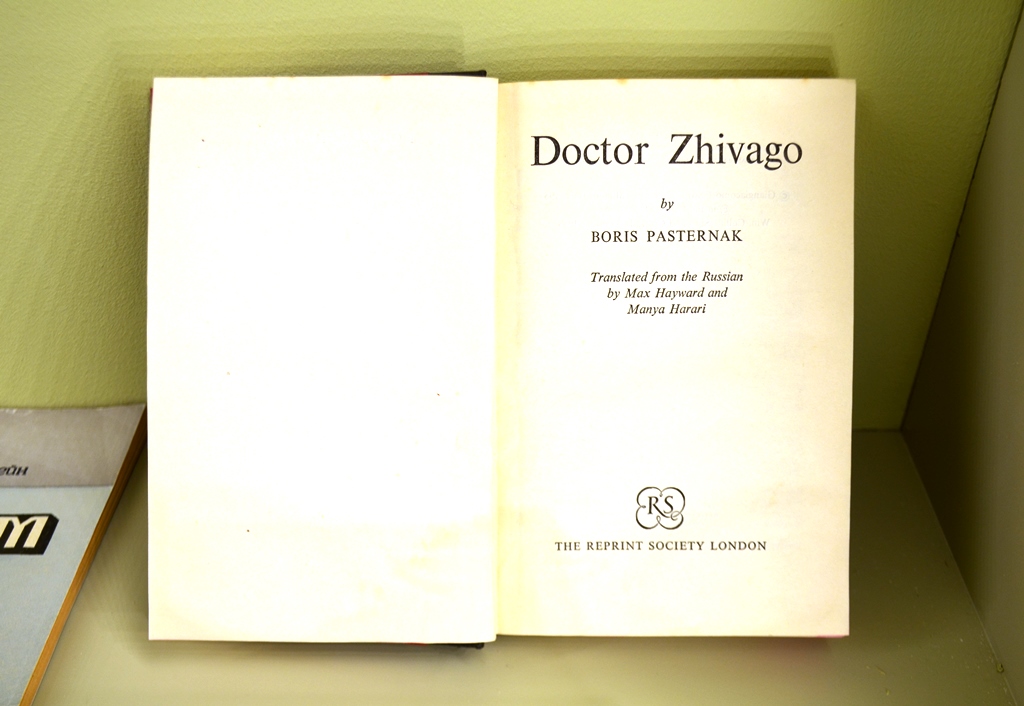A few weeks ago, the funds of Museum “Jewish Memory and Holocaust in Ukraine” were replenished with a new exhibit – one of the first editions of the novel “Doctor Zhivago” by the Nobel laureate in literature Boris Pasternak (1890–1960). This work, which brought the author world fame as a prose writer, simultaneously played a fatal role in his creative biography and, as it turned out, life.
Boris Pasternak worked on this book during the post-war decade – 1945-1955. Its separate parts, namely “Poems from the novel in prose “Doctor Zhivago”” were published even before the text of the novel was completed in April 1954 in the magazine “Znamya”. Boris Pasternak, in his correspondence with relatives, was happy about this publication, because he had great doubts about the prospects of printing the novel in the USSR. Unfortunately for the writer and readers, his prediction became a reality. In 1956, the leading literary magazines (Magazines “New World”, “Znamya”, “Literature Moscow”), to which B. Pasternak sent the manuscript of the completed work, refused the author to print the book. At the end of the same year, through the mediation of the Italian journalist Sergio D'Angelo, the book got outside the USSR and was published in 1957 in Italy.
The very next year, after the Italian one, the first edition of “Doctor Zhivago” appeared in English.
In October 1958, Boris Pasternak was awarded the Nobel Prize in Literature “for significant achievements in modern lyric poetry, as well as for continuing the traditions of the great Russian epic novel.” If until that moment, the censorship of the novel in the USSR was in the non-public plane of the writer's private correspondence with the publishing houses, then the news about the international recognition of the book marked the beginning of large-scale harassment of the author. Central and regional Soviet newspapers were filled with appeals from labor groups and individual “indifferent” citizens who branded the talented writer. The expression “I haven't read the book, but I condemn it”, from one such publication, became a winged and at the same time laconic personification of the “unprecedented freedom of creative expression” under the conditions of Soviet totalitarianism. Let's remember that the campaign against Pasternak is taking place under the conditions of the so-called social liberalization – the “Khrushchev thaw”.
In less than two years, the talented poet and writer went into the limelight. Only thirty years later, the novel was first published in the USSR in the Novy Mir magazine. The same magazine, which initially refused the writer publication, and later started a campaign of officially approved harassment from its pages.
In the permanent exposition of our Museum, namely in the part “The World after the Holocaust”, you will be able to see the second edition of the novel “Doctor Zhivago” in English, which was published in 1959 in Great Britain. The story of Boris Pasternak is just one of many stories of the past. And you can immerse yourself in its context by visiting the Museum.
Yehor Vradii

